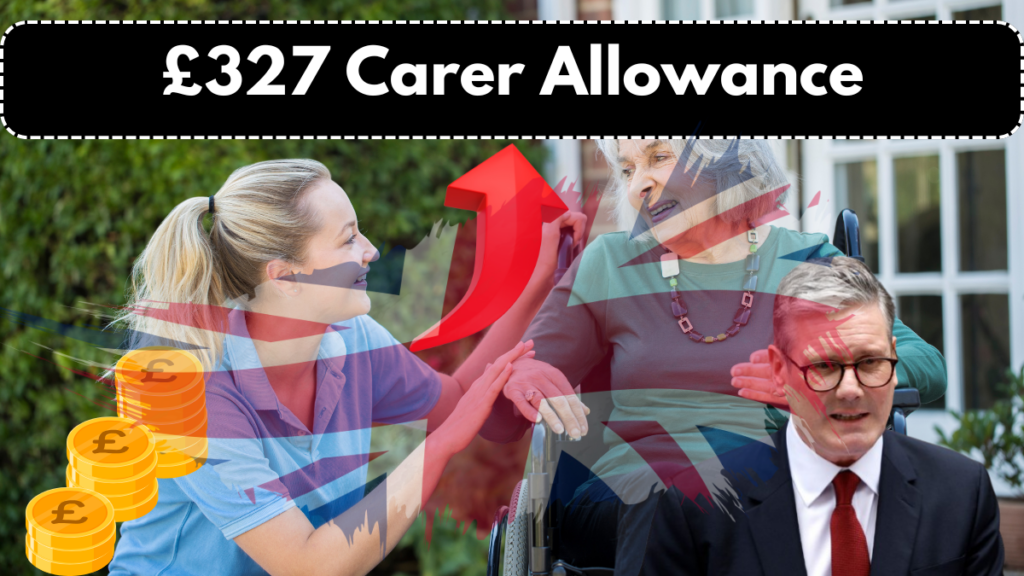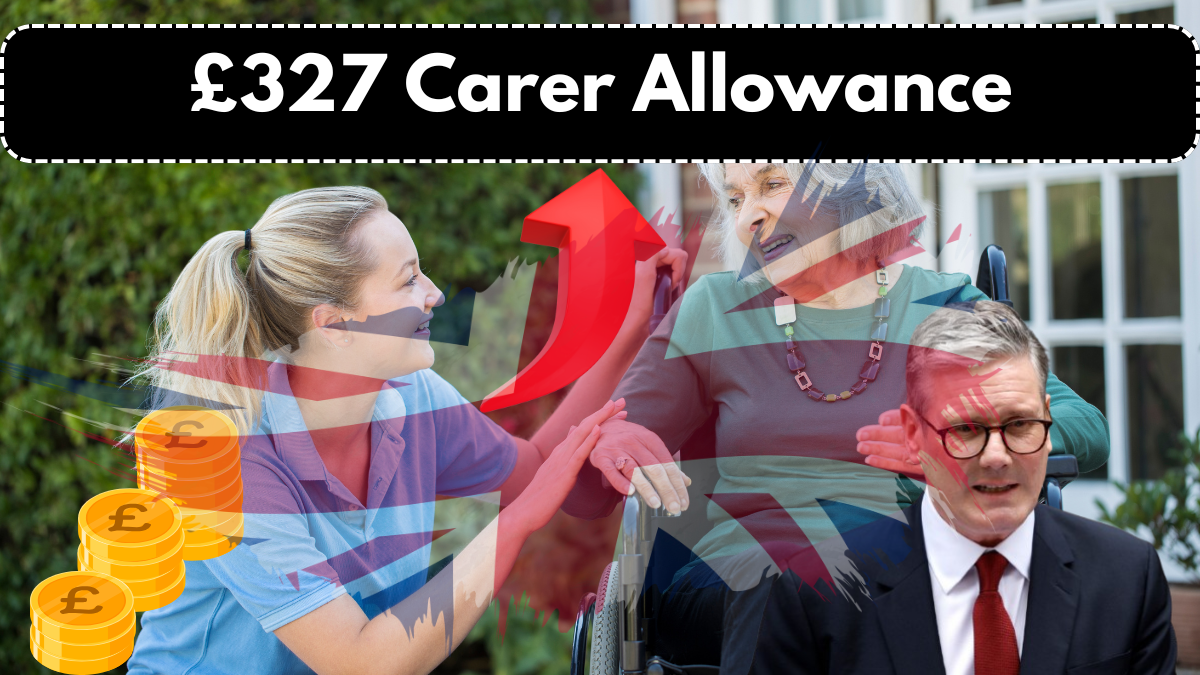Carer’s Allowance is a financial benefit provided by the UK government to individuals who dedicate a significant amount of time caring for someone with substantial physical or mental health needs. As of 2024/25, eligible carers receive approximately £81.90 per week or £327.60 per month. This allowance acknowledges the invaluable contributions of unpaid carers and helps ease the financial burden that caregiving often entails.

Eligibility Criteria for Carer’s Allowance
To qualify for Carer’s Allowance, applicants must meet specific requirements:
Age Requirement
- The applicant must be at least 16 years old.
Minimum Hours of Care
- The applicant must provide at least 35 hours of care per week.
Earnings Limit
- Earnings must be £151 or less per week after deductions such as tax, National Insurance, and allowable expenses.
Education Restriction
- The applicant must not be in full-time education (21 or more hours per week).
Residency Requirement
- The applicant must live in England, Scotland, or Wales (Northern Ireland has separate rules).
- Must have resided in the UK for at least two of the last three years.
Qualifying Disability Benefits for the Person Cared For
The person receiving care must be entitled to one of the following benefits:
- Attendance Allowance
- Disability Living Allowance (DLA) (Middle or Higher rate for personal care)
- Personal Independence Payment (PIP) (Daily Living component)
- Armed Forces Independence Payment
How to Apply for Carer’s Allowance
The application process for Carer’s Allowance is straightforward. Follow these steps to ensure a smooth application:
1. Gather Necessary Information
Applicants need:
- Their National Insurance number and bank account details.
- The National Insurance number of the person they care for.
- Proof that the person they care for receives a qualifying disability benefit.
2. Apply Online
- The fastest way to apply is through the official GOV.UK website.
3. Apply via Phone or Post
- Contact the Carer’s Allowance Unit or apply using a paper form..
4. Processing Time
- Applications typically take 6 to 12 weeks to process.
- If approved, payments may be backdated to the application date.
Carer’s Allowance Payment Details
Carer’s Allowance payments are sent directly to the applicant’s bank account. Applicants can choose between weekly or four-weekly payments:
| Payment Option | Amount Received |
|---|---|
| Weekly Payment | £81.90 per week |
| Four-Weekly Payment | £327.60 every four weeks |
Financial Considerations for Carers
Impact on Other Benefits
Carer’s Allowance can affect other benefits, including:
- Universal Credit: If you qualify, you may receive an additional Carer’s Element.
- Pension Credit: Receiving Carer’s Allowance can reduce your entitlement.
- Income Support: Your total benefits may be adjusted if you receive Carer’s Allowance.
Tax Considerations
- Carer’s Allowance is a taxable benefit.
- If your total income exceeds the Personal Allowance threshold, you may have to pay tax.
National Insurance Credits
- By claiming Carer’s Allowance, you automatically receive Class 1 National Insurance credits.
- These credits count toward your State Pension eligibility.
Additional Support Available for Carers
Beyond Carer’s Allowance, carers may be eligible for other forms of support:
1. Carer’s Credit
- If you care for at least 20 hours a week but do not qualify for Carer’s Allowance, you may still receive Carer’s Credit to protect your State Pension.
2. Carer Premium
- An additional payment for individuals receiving Income Support, Housing Benefit, or Pension Credit.
3. Universal Credit Carer Element
- If you receive Universal Credit, you may qualify for the Carer Element, providing extra financial support.
4. Blue Badge Scheme
- Caregivers of individuals with significant mobility challenges can apply for a Blue Badge, providing improved parking accessibility.
5. Local Authority Support
- Many local councils offer respite care, training programs, and support groups for carers.
Practical Tips for Carers
Caring for a loved one can be physically, emotionally, and financially challenging. Here are some essential tips to help you manage:
1. Budget Wisely
- Keep track of expenses and explore discounts available for carers.
2. Seek Support Networks
- Join carer support groups such as Carers UK for guidance and emotional support.
3. Prioritize Self-Care
- Make time for your own physical and mental well-being.
- Consider respite care services to prevent burnout.
4. Stay Informed
- Regularly check GOV.UK for updates on benefits and available resources.
Final Thoughts
Carer’s Allowance is an essential financial support system for unpaid carers in the UK. Understanding the eligibility criteria, payment structure, and application process ensures that carers can access the financial assistance they need. Additionally, exploring extra benefits, support groups, and financial management strategies can help carers navigate their journey more effectively.
Frequently Asked Questions (FAQs)
Q1: Can I work and still receive Carer’s Allowance?
Yes, but your weekly earnings must not exceed £151 after deductions.
Q2: Can I receive Carer’s Allowance if I’m studying?
No, you cannot claim if you are in full-time education (21+ hours per week).
Q3: Can I claim Carer’s Allowance if someone else is already claiming for the same person?
No, only one person can claim Carer’s Allowance per cared-for individual.
Q4: Can I receive Carer’s Allowance if I receive a State Pension?
If your State Pension is more than Carer’s Allowance, you won’t receive payments but may qualify for Carer’s Premium or other benefits.
Q5: How long does it take to process a Carer’s Allowance application?
It usually takes 6-12 weeks. If successful, payments may be backdated.
Click here to learn more
Sachin is a dedicated writer specializing in education, career, and recruitment topics, delivering clear and actionable insights to empower readers.
